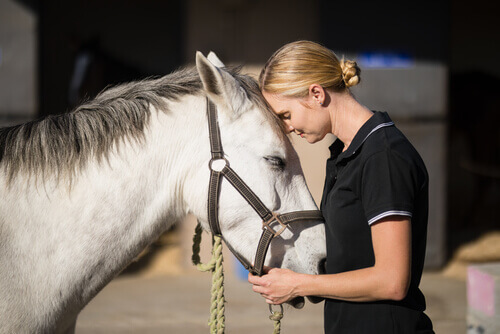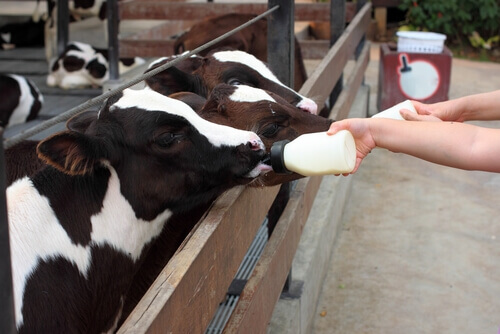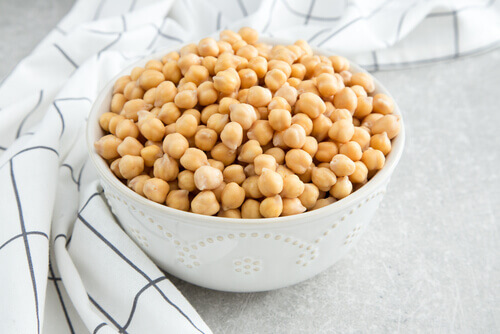Does Being a Vegetarian Mean You Love Animals?

One of the reasons why people choose a vegetarian lifestyle is out of love and respect for other species. It’s an act of love because these individuals choose not to take another life in order to nourish their own. In other words, they refuse to take advantage of another creature’s weakness for their own benefit. Of course, that doesn’t make them better people, but perhaps it makes them less selfish. But does being a vegetarian mean you love animals, necessarily?
Why do people choose vegetarianism?
We all have the option to choose what to eat and what not to eat when it comes to our convictions and tastes. Vegetarianism is a lifestyle, not a fad diet. It’s not about believing you’re better than others because you don’t eat meat. Rather, being a vegetarian means demonstrating that this type of diet can be healthy. Even if you’re not an animal lover, cutting out meat can be beneficial to your health as well as the health of our planet.
If you decide to be a vegetarian because you love animals, that’s a perfectly valid reason. Those who maintain this lifestyle don’t depend on the deaths of other creatures for their own nourishment. But there are plenty of people who are passionate about pets but still eat beef, chicken, fish, etc. And that brings us to another important question… What’s the difference between killing a cow and killing a dog?
Many westerners find it very disturbing that dogs are used for food in China. However, they don’t stop to consider how disturbing it is for Hindus that we eat cows, which they consider to be sacred. So, why is it okay to eat some animals and not okay to eat others ?
Culture, tradition, and education have a lot to do with our perspectives on the subject. From the time we were small, we learned that eating meat makes us strong and healthy. And we also learn that cutting out certain animal products will lead to a deficiency in iron and other nutrients.

The health benefits of being a vegetarian
However, research has demonstrated that vegetarians are not lacking in nutrients. In fact, in many cases, they are even healthier than their omnivorous neighbors (that eat any kind of food). This doesn’t mean that cutting out meat will make you lean and healthy–even vegetarians can suffer from obesity and high cholesterol. But, a diet based on fruits and vegetables is much more suited to our needs.
Did you know that the human body isn’t designed to consume meat? If we compare ourselves to felines, for example, we’ll realize that both are teeth and our digestive system are different. We don’t have large fangs, our intestines are longer, and the saliva we produce only digests fruits, vegetables, and seeds…
The evolution of man has reduced our consumption of plants and we’ve come to depend more on animal meat. We can also factor in the discovery of fire, which allowed us to cook our food. As a result, we’ve forgotten about our own biology in order to consume foods that actually aren’t suitable for our human bodies.
Being a vegetarian means loving animals… and the planet!
It’s not about putting vegetarians on a pedestal as if they were responsible for saving the planet. But, we can safely say that this type of lifestyle is more sustainable for our environment.

Just consider the following example… In order to produce 1 pound of meat, it takes thousands of gallons of water. But that’s not all. Cattle raising requires deforestation and causes the release of more methane gas into the environment than factories. The waste that farm animals produce is 7 times greater than that of humans. And, while it serves as fertilizer, a large part of it ends up in our water supply and deteriorates marine biodiversity.
We can also mention the contamination that fishing boats cause to our seas and lakes. And, of course, we can’t forget about the “secondary” deaths of species that are accidentally trapped by shoals. This is the fate of many dolphins who get caught in tuna nets.
The waste that meat consumption produces–bones, skin, fat–decomposes much faster than that of plant-based products (skins, seeds, etc). What’s more, it produces viral and bacterial illnesses.
The decision and commitment to become a vegetarian is a personal one. And it’s something we should all seriously consider. No animal should have to suffer for our benefit, and we can apply this to any area–including our nutrition.